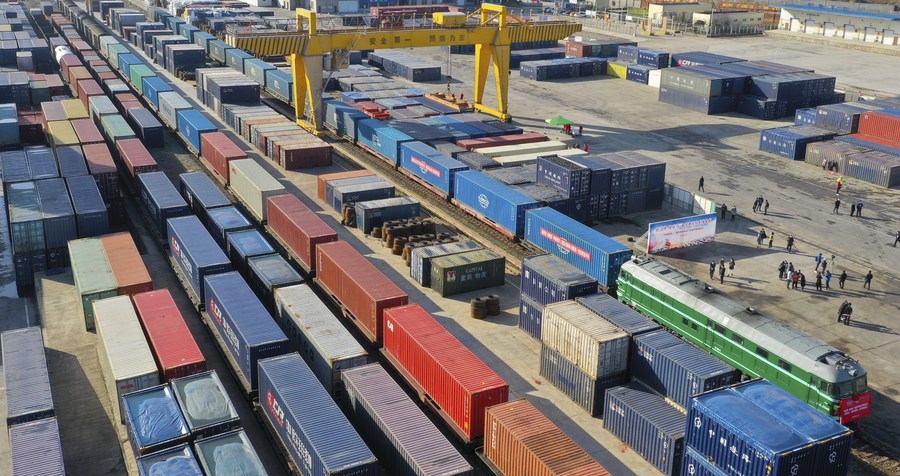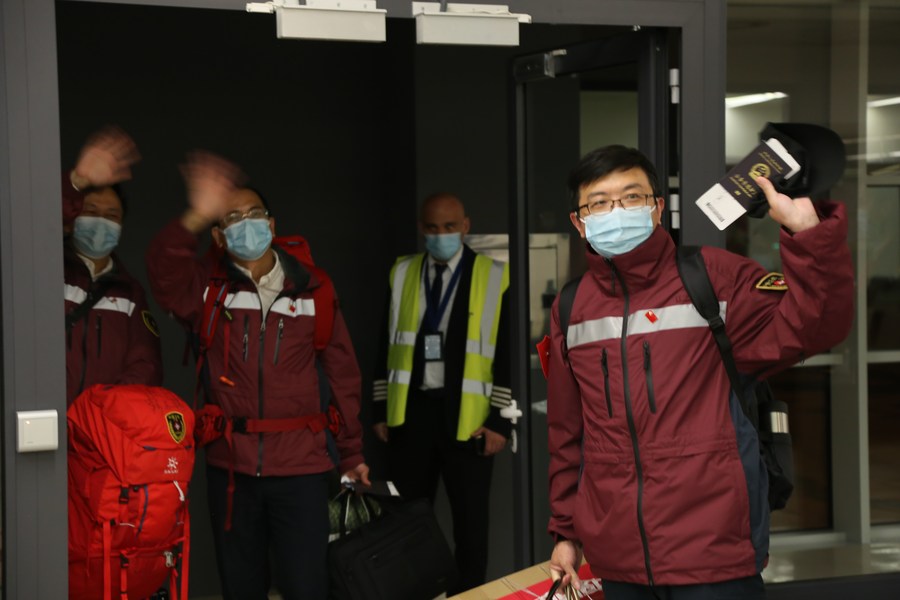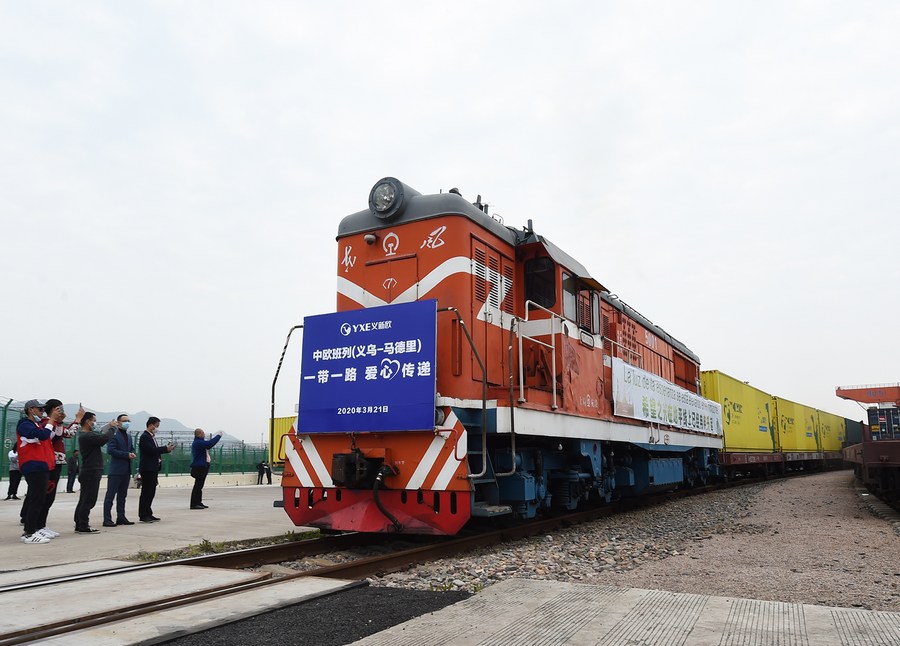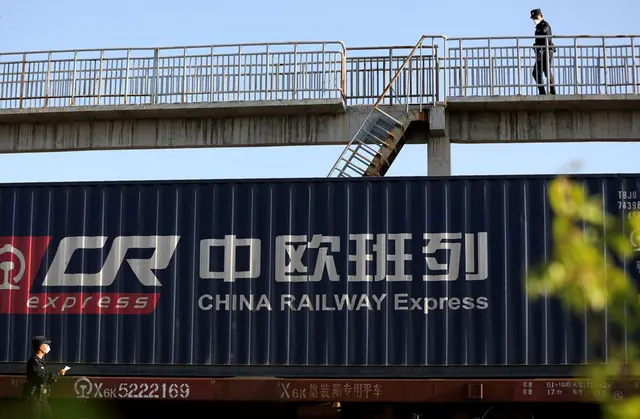A policeman checks an outbound China-Europe freight train at Horgos Pass in northwest China's Xinjiang Uygur Autonomous Region, April 20, 2020. (Photo by Zhang Jia/Xinhua)
"With China being an engine of the international economy, it is more than necessary to keep its economy stable," said a Serbian scholar.
BELGRADE, July 19 (Xinhua) -- China's role in fighting COVID-19 is immense, and its Belt and Road Initiative (BRI) will prove as key to mitigating negative effects caused by the pandemic globally, a Serbian scholar has told Xinhua.
The BRI is important to both global health and economic development amid the pandemic, said Ivona Ladjevac, head of the center for the Belt and Road Initiative at the Institute of International Politics and Economics in Serbia, on Friday.
She expressed her confidence that the initiative will continue to be an engine of international economic growth thanks to the timely measures taken by Chinese authorities,
Commenting on China's response to the economic fallout caused by the pandemic, Ladjevac said that the country used "milder and less invasive" economic measures to deal with economic consequences of the pandemic than the European Union or the United States.
"China has primarily focused on fiscal policy measures and measures to maintain liquidity, rather than monetary measures," she said.
In the second quarter, China posted a positive growth in gross domestic product (GDP) of 3.2 percent, showing that the country has turned around the negative trends from the first quarter.

Aerial photo taken on Feb. 17, 2020 shows a China-Europe freight train fully loaded with auto parts, mechanical facilities and garments bound waiting for departure at Xiangtang railway port in Nanchang, east China's Jiangxi Province.(Xinhua/Hu Chenhuan)
Ladjevac said that China is facing the biggest challenge to diminish the negative effects of the COVID-19 pandemic in China and to contribute to economic recovery across the world.
"This challenge is the biggest and the most serious since the establishment of the People's Republic of China. Since the economic rate was negative in the first quarter of this year, the Chinese government will continue to insist on promotion of economic and social development, providing necessary assistance to enterprises in order to maintain jobs," Ladjevac said.
"With China being an engine of the international economy, it is more than necessary to keep its economy stable," she said.
Recalling how the steel friendship between the two countries helped Serbia prevent the worst scenario in the early days of the epidemic, she commended the contribution of the BRI to global health and economic development.

Chinese medical expert team members wave goodbye at the airport in Belgrade, Serbia, June 11, 2020. (Xinhua/Shi Zhongyu)
Noting that China sent tons of medical equipment and two teams of epidemic experts to help combat the outbreak and provide treatment to patients in Serbia, Ladjevac said "China has provided selfless professional, moral and material assistance, more than envisaged by the comprehensive strategic partnership agreement between our countries."
Were it not for the experts, lab equipment, testing kits, medical devices and protective equipment from China, Serbia would have been in an even more difficult situation, she added.
With 20,498 confirmed COVID-19 cases and 461 deaths, the country's death rate from the disease stands at 2.25 percent, which is well under the global average.
Ladjevac said that Serbia, now faced with the resurgence of the epidemic, continues to look forward to cooperation with China for the development of its economy, especially on projects within the BRI.

A China-Europe freight train bound for Madrid of Spain, which carries two containers of medical supplies as well as other goods, departs the city of Yiwu, east China's Zhejiang Province, March 21, 2020.(Photo by Gong Xianming/Xinhua)
She said that some of the BRI projects will be of crucial importance to Serbia's future after the epidemic, such as the construction of Shandong Linglong Tire Factory in Zrenjanin, the modernization of the Kostolac thermal power plant, and the construction of the Belgrade-Budapest railway as well as the Belgrade-South Adriatic highway.
Most recently, in June Chinese construction company Shandong Hi-Speed started the construction of the 18.3-km Lajkovac-Iverak expressway in Western Serbia, which is expected to bring benefits to local residents and boost employment in this part of the country.
"Since the Belt and Road Initiative is the widest world initiative that gathers so many countries, it is necessary to overcome current problems posed by the pandemic and add new impetus to the initiative, which serves as the engine of not only regional economic growth but global economic development," Ladjevac said.
 简体中文
简体中文



